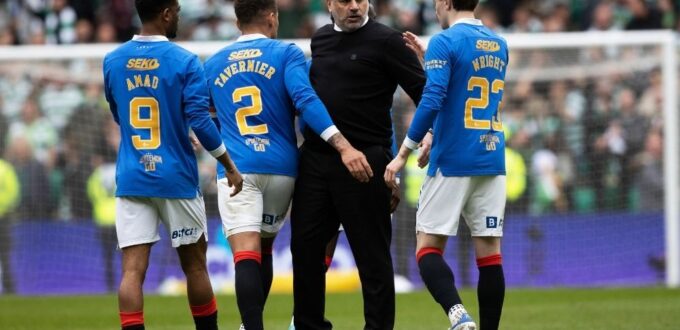- Sportemon Go seeks amicable termination of partnership agreements
- Hibernian had scaled back partnership and offered refunds
SportemonGo, a cryptocurrency firm that had partnerships in place with Scottish Professional Football League (SPFL) teams Rangers and Hibernian, as well as receiving endorsements from Premier League soccer players, has ceased trading.
The Athletic notes that the value of Sportemon Go’s ‘SGOX’ token launched in July last year before crashing in the Autumn.
Promotional posts on social media by Andy Robertson, Luke Shaw, and Callum Hudson-Odoi helped enhance the value of the tokens in October but fans eager to benefit from this enhanced prominence were left short changed after early adopters cashed out, causing the value of the tokens to plummet.
Sportemon Go’s social media accounts were taken down on 1st May before reappearing with a message that confirmed plans to withdraw from the market.
‘The SGOX Token has ceased trading. The community voted unanimously to redeem SGOX for L1TF token’, read the message, indicating that owners would be offered some sort of compensation in the form of another cryptocurrency.
It added that assets featuring the intellectual property of its partners was being removed or deleted and that it was working on ‘amicable’ termination agreements.
Rangers and Hibernian had planned to offer other blockchain-based digital products as part of thir sponsorship agreements but nothing of substance ever really emerged. Hibernian said it performed due diligence prior to signing its agreement and had scaled back its activity with Sportemon Go after learning of its difficulties. It added that it refunded any fan who purchased Hibernian fan tokens, which had yet to be traded on an open market.
However, there will be no compensation for fans who were encouraged to make an investment in SGOX.
Proponents of blockchain-based technology in sport point to the potential revenue, fan engagement, and operational opportunities but this latest episode further highlights the dangers of clubs and players partnering with blockchain firms without understanding their responsibilities to fans and reputation.
Several sports teams and federations have signed sponsorship deals with cryptocurrency firms, launched fan tokens, and released NFT collections but have received criticism for seeking to exploit fandom to increase revenue rather than offer genuine benefits to supporters.
English Premier League side Arsenal saw adverts by the club promoting fan tokens banned for taking advantage of consumers’ inexperience in cryptoassets and others have been accused of not doing enough research before accepting cryptocurrency sponsorships.
Barcelona launched a fan token last year but was forced to cancel an NFT partnership with Ownix after a consultant linked to the firm was arrested, while Manchester City suspended a partnership with 3Key after just a week following questions over the company’s legitimacy. Iqoniq’s liquidation earlier this year left multiple sporting organisations potentially out of pocket.

No Comments Yet